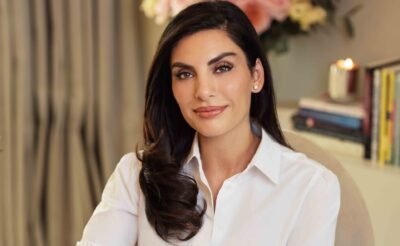Are millennials the most narcissistic and self-absorbed generation in history, or have we finally recognised our self-worth?
It can be difficult to distinguish the differences between self-absorbed vanity and high self-esteem, especially when living in a culture crazed by celebrity and digital exhibitionism. Kim Kardashian-West, for example, readily admits that she has no particular talent. “Now is the one time in my life I can be 100 per cent selfish,” she said pompously, during an episode of Keeping Up with the Kardashians in 2010. “I’m not married; I don’t have kids; I can focus on my career.” Her sentiment is one that’s expressed by many. After all, we’re the children of baby boomers, who are also known as the Me Generation which, in turn, makes us the Me Me Me Generation.
At least, that seems to be the prevailing perspective of the modern woman. She’s more likely than her parents to claim she’s above average in just about every way, and evaluates her popularity based on how many Instagram likes she’s racked up by noon. She interacts constantly, but almost entirely through a phone or computer screen, and she grew up watching reality television – shows that are basically documentaries about narcissists. While many of us look calm and collected, we’re profoundly anxious. According to Deloitte, we check our phones 46 times per day, and many of us experience phantom pocket-vibration syndrome.
“Has our obsession with social media, a need for instant gratification, and the changing nature of the job market encouraged an egocentric streak?”
Annie Darling
Has our obsession with social media, a need for instant gratification, and the changing nature of the job market encouraged an egocentric streak? In 1890, philosopher William James first identified self-esteem as a fundamental human need, no less essential for survival than other emotions, including anger and fear. But as we become more ambitious, more demanding, and much more self-involved, are we also picking up personality and behavioural traits that are commonly associated with narcissism?
“First, to clarify, when we talk about narcissism, what we’re usually talking about is something in psychology which we call ‘grandiose narcissism’,” explains W. Keith Campbell, a professor at the University of Georgia, who has written three books about generational increases in narcissism. The personality disorder, which is largely defined by self-centredness and exaggerated feelings of self-importance, has become a catchphrase of sorts over the years, in a similar way to how people will describe themselves as obsessive-compulsive, just because they’re orderly and detail-oriented.
It would seem that narcissism has become the go-to diagnosis for people that we don’t like. It’s been used to explain the behaviour of bad boyfriends, and justify egotistical tweets by the likes of Justin Bieber and Donald Trump; the latter, of course, enjoys boasting about his wealth, portfolio of luxury golf resorts, and soaring poll numbers, to say the least. A buzzword often used to describe Instagram celebrities who are preoccupied with fantasies of unlimited power, beauty and brilliance, the term ‘narcissism’ has been rendered meaningless. “They [narcissists] are extroverted and attention seeking,” educates Dr. Campbell, “and they have a sort of inflated positive view of themselves.” The psychologist furthers that the similarities between self-confidence and narcissism aren’t as significant as people might suggest. “It’s actually pretty modest,” he reveals, before confirming that they’re “completely different things.” Self-esteem and tenacity is largely life-enhancing, whereas narcissism is an unhealthy obsession that ultimately results in unhappiness. “The main difference has to do with this interpersonal callousness,” explains Dr. Campbell. “People who are narcissistic tend to think that they’re better than other people. They tend to think that they’re smarter, more important, and they tend to see other people as beneath them.”
Those with the condition have little or, in some instances, no desire for intimate or meaningful relationships, yet they constantly crave and seek admiration from others. They are also thin-skinned, and react angrily when challenged or ignored. “People who have high self-esteem are a little different,” argues Dr. Campbell. “They may think that they’re more attractive than others, for example, but they also tend to be, on average, better people. They’re more morally-focused.” But while few women knowingly blind themselves to empathy, it can be challenging to prioritise others when surrounded by a society that places importance on trivial achievements and superficial success.
After all, we’re regularly red upon with bee-stung pouts and slender selfies, many of which are posted online by superstars and role models such as Gigi Hadid, Kendall Jenner and Rihanna. The undisputed queen of selfie-taking, Kim Kardashian-West even published a coffee table book of annotated self-taken photos, titled Selfish, in an ode to the people around her. News feeds brimming with images of gym bunnies and extravagant Mediterranean holidays can set unrealistic expectations, and create feelings of inadequacy as well as low self-esteem.
“People who are narcissistic tend to think that they’re... smarter, more important, and they tend to see other people as beneath them.”
W. Keith Campbell
“People who are narcissistic get their own self-esteem by being better than other people,” Dr. Campbell tells MOJEH, which means that they’re likely to exploit other people’s insecurities, and it’s easily done. Research commissioned by Mattress Firm found that the average millennial spends just over four hours each day worrying, while 71 per cent wake up in the middle of the night thinking about current stressors up to three times during a typical week. With more and more of us suffering from depression and anxiety, thanks to lives that are riddled with isolation and overexposure, it’s easy for narcissists to target victims, both in person and online.
“Narcissists will often use people to look and feel good,” says Dr. Campbell. “That’s why you see these celebrities hanging out with all their friends – their entourage. They gather groups of people that will hang out with them and tell them how great they are.” One can’t help but think about Taylor Swift’s famous inner circle, which popularised the hashtag #SQUAD, and includes a bevy of Victoria’s Secret models and high-pro le actresses, from Karlie Kloss and Cara Delevingne to Gigi Hadid and Selena Gomez. Considering the above, it’s no wonder that our own self-worth is frequently downsized into a perpetual pursuit of the perfect body, résumé or dating profile. “What I’m talking about is a trait,” comforts Dr. Campbell, upon hearing the slight panic in my tone of questioning. “The idea is that all of us have it [narcissism] in some way or another. It’s just that most people are sort of average, while others are high and some are low.” There is, however, a correlation between social media and narcissism, he says. Evidence suggests self-centred individuals spend more time using these platforms and tend to post more often than others, favouring provocative material.
“What I’ve found is that people who are narcissistic use social media to promote themselves,” reveals Dr. Campbell, but he rejects the argument that social media is turning users into narcissists. Instead, it simply attracts them. “Social media doesn’t seem to be turning everybody into narcissists just by using it, which is something that 10 years ago I would have expected.” So why, then, did the National Institutes of Health and that people in their 20s are nearly three times more likely to have narcissistic personality disorder in comparison to those who are now 65 or older?
These findings could be attributed to the millennial generation’s endless opportunity for self-promotion and self-reflection, combined with a wider culture that places greater emphasis on the importance of self-esteem. We’re also dreamers. Dreamers who witnessed the election of the first African-American president. A man whose slogan was distilled into one, pivotal word: Hope. Dreamers who have seen more women than ever before secure top-earning jobs in male-dominated industries (66 per cent of all public sector positions and 30 per cent of all decision-making roles within the UAE’s government sector are held by Emirati women). Rather than nosediving into a bottomless pit of selfishness and self-entitlement, maybe the modern woman is, instead, spearheading a revolutionary break from previous generations that were suppressed and constrained.
And with over one million women recently storming the streets of numerous capital cities on behalf of Women’s March, #MeToo and Time’s Up, both in protest against harassment and the gender pay gap, it’s worth considering the possibility that rather than becoming more narcissistic, millennial women are actually becoming more con dent about their own abilities and self- worth, thanks to an ever-expanding world that’s humming with the excitement of opportunity.
Is it possible that our well-earned self-confidence is being mistakenly dismissed as narcissistic? I believe so. And I live in hope that we’ll surprise them all by becoming the greatest generation of optimistic winners on record.



